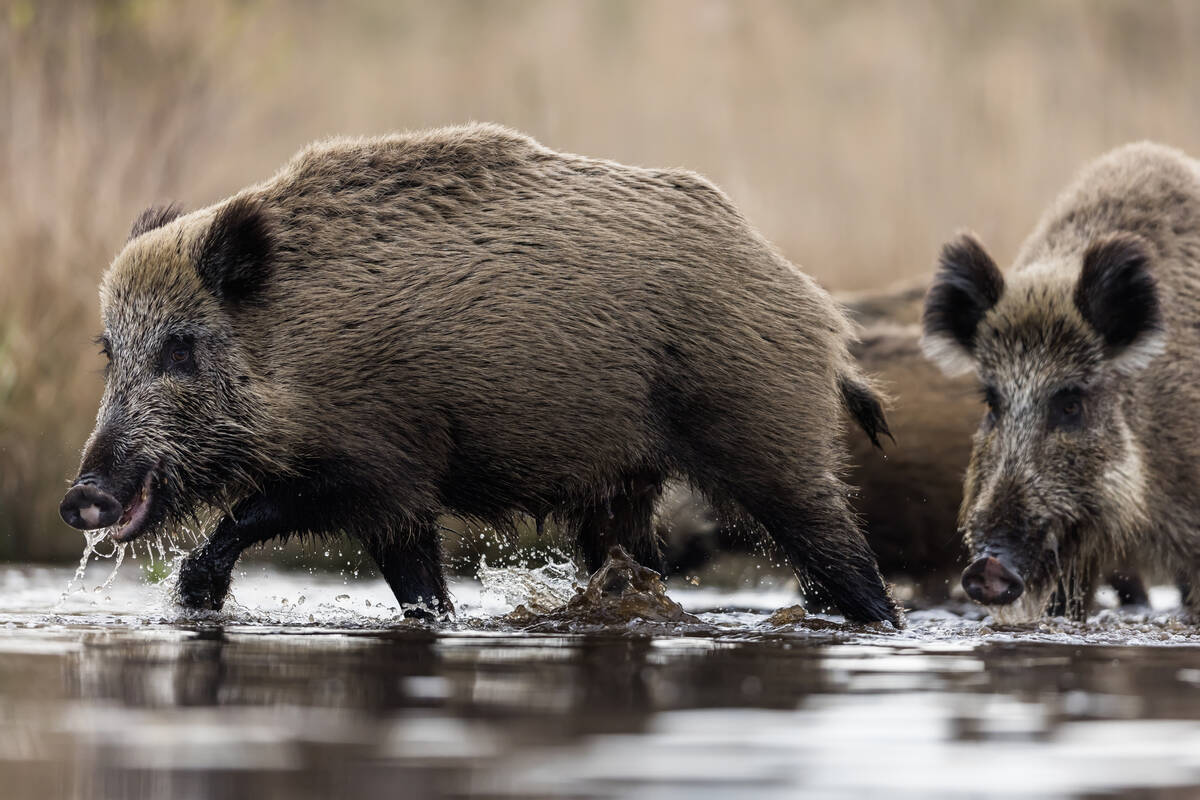As the Liberal government under the guidance of Justin Trudeau prepares to take control in Ottawa, stakeholders in Canadian agriculture were left wondering what the power transfer will mean for the industry.
Keystone Agricultural Producers president Dan Mazier said the Liberals have reached out to build relationships with producer organizations over the past few years and he doesn’t foresee a difficult change with the power transfer.
However, Mazier said he is grateful for a national lobby organization based in Ottawa that is looking our for Canadian farmers’ interests.
Read Also

Manitoba bans wild boar possession
Manitoba has tightened the regulatory status of Eurasian wild boar in an effort to help fight back against invasive wild pigs.
“We’re dealing with Eastern Canada again. It’s back to those 80s and 90s type of situation. The only good thing I have to say for us here in Manitoba is, and for any general farm organization, is thank goodness we have the Canadian Federation of Agriculture sitting in Ottawa lobbying for all the farmers across Canada.”
During the Conservative mandate, there were major cuts to farm programs in Growing Forward 2, such as the PFRA, and Mazier said the cuts blindsided the industry and nothing was implemented to fill the voids left by these cuts.
“We’re still reeling from some of the cuts that were made in our industry and it’s destabilizing us a bit, so I’m hoping we get a little more meaningful consultation on this.”
The new Liberal government will have to implement the next generation of farm programs, as Growing Forward 2 will expire during their mandate.

On the farm labour front, Mazier said he believes the Liberals understand that agriculture needs to be treated differently then other industries when it comes to labour.
“The Liberals identified Canadian Agriculture Recourse Centre plan as an approach to the labour issues, so we should be golden there,” Mazier said.
To see all of our election coverage visit Western Producer’s Election 2015 page
Norm Hall, president of the Agricultural Producers Association of Saskatchewan (APAS) said it didn’t matter to APAS what party got in, they just wanted more producers to get out and talk to their candidates to make sure agriculture was part of the discussion.
Hall said he hopes that the Liberal government will take more of an active leadership role on water issues on the Prairies than the Conservatives.
“The Liberals were totally against getting rid of the PFRA, and the PFRA had a lot of water knowledge, and water infrastructure,” Hall said
“The PFRA did a lot of study and when we lost the PFRA they lost a lot of knowledge and the ability to study more. That’s something that the Liberals have talked about, not restarting the PFRA, but doing something about water leadership. Regionally, not just province by province by province.”
Hall said there is a lot of opportunity for Canadian agriculture in the Trans Pacific Partnership trade deal, and that he hopes the Liberal government keep moving forward with these negotiations.
“There are a number of possibilities for agriculture in this trade deal. Every trade deal that we sign where there are positives for us, we still have to work to get them. We have to be competitive; we have to be able to get our product to port and to the customer in a timely manner. It will be up to us and our infrastructure to take advantage of these deals,” Hall said.
Western Canadian Wheat Growers Association, president, Levi Wood, said he hopes the Liberal government will takes seriously the recommendations of the CTA review.
“Transportation is still a major concern and we hope that we see some fairness come out of the CTA review, and we hope that the new government will make the review become a positive thing for agriculture,” Wood said.
Alberta Beef Producers chair, Greg Bowie, said the new government will likely look at some sectors differently, but he hopes it will recognize how critical agriculture is to the country
“There are some things that have happened over the last while that we hope the new government will continue, like mandatory (country of origin labelling rules in the U.S.) looked like it was getting close to the end and hopefully with the new government that doesn’t change,” Bowie said.
Jan Slomp, president of the National Farmers Union, said he believes the Liberal government will be able to deal with the rail transportation issues faced by producers.
“We need to find an semi government authority that exercises this duty. The Canadian Grain Commission is probably the most logical institution to take on this role. Allowing the revenue cap to go up is not a solution. It’s exactly what the railroads have been hoping to get out of this,” Slomp said.
“I think that Goodale understanding the file of the grain commission and grain transportation, I think there is a chance of doing something there,” Slomp said.
Slomp said he doesn’t expect to see much difference in the how the Liberals approach the agriculture file than how Conservatives managed it.
“The Liberals don’t have agriculture as a high priority, so they likely are not going to massively change where the Conservatives have moved us to, partly because the prairies (elected mainly) Conservative MPs.”
Slomp said the Liberals are as motivated by a similar free trade agenda as the Conservatives and he expects to see a continued movement toward self-regulation by large corporations in the sector.
















